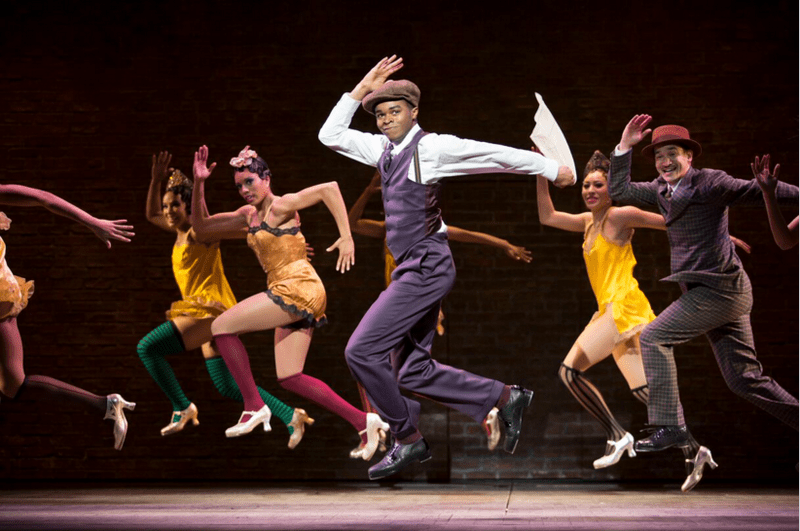
In 1921, "Shuffle Along" was a smash. It was the first Broadway hit to have an all-black creative team and ensemble — in fact, the show became so big that it played over 500 performances, which was unusual for the time. You might even be familiar with one of its songs: "I'm Just Wild About Harry."
Then it was forgotten.
That's why its revival on Broadway in a new production directed by George C. Wolfe called, "Shuffle Along, Or the Making of the Musical Sensation of 1921," is so important. The original musical, though thinly plotted, was a landmark, launching the careers of such luminaries as Josephine Baker and Paul Robeson.
But after an exuberant, thrilling first act, the weight of all that history drags down the second. We know from the beginning that it's a piece of docu-theater. But the first half gently traces the origins of the 1921 show, using Savion Glover's fiery choreography and a large, talented ensemble to propel the wispy threads of the story forward. We see rehearsal rooms and vaudeville halls and — most creatively — a train built from a close line of tap dancers, shuffling tiredly across the Mid-Atlantic states. There's also the insanely charismatic Audra MacDonald, who manages to put power and splashes of humor into the operetta she's asked to sing (she'll be away from the show this summer from June 21 - September 11, 2016) and the perfectly pouty Adrienne Warren, who gives a sly performance to two different cast members of the original show.
There's no lack of talent, certainly. Brian Stokes Mitchell and Billy Porter play the writers of the original book, F.E. Miller and Aubrey Lyles; Brandon Victor Dixon and Joshua Henry are the writers of the music and lyrics, Eubie Blake and Noble Sissley. They're joined by a large ensemble which dances and sings with precision and joy.
But Wolfe — he also wrote this show's book — doesn't just want to entertain. He wants to get across that the forefathers and foremothers of these talented artists were crippled by American racism. That's an admirable goal for a piece of theater, and a rare one for a musical.
But Wolfe invests so little time in the dreams and motivations and backstories of his characters in the first act that we don't feel emotionally tied to them in the second. It's basically one long coda — a "whatever happened to...." narrative that moves through history so quickly that the impact of racial discrimination on these men and women of 1921 is diluted. Instead of sweeping us up in the history, it turns to lecturing. The second act, in other words, is something to endure, instead of something to enjoy.
That's too bad, because that first act is really astonishing. It's Broadway as we want it to be, with dozens of feet taping out rhythms that become explosions of feeling. In the first act, it doesn't matter that the book is thready. We don't care, because the music and dancing are so propulsive, they make the story beside the point.
